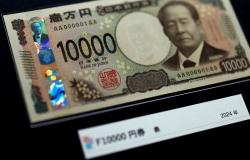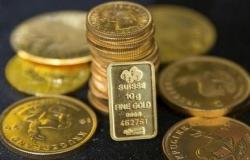The Bank of Japan must raise interest rates regularly to guard against the risk of inflation accelerating well beyond its 2% target, said Takeo Hoshi, an academic familiar with Japan’s monetary policy. country.
Japan’s wage-inflation dynamics are evolving in ways not seen in the past, with intensifying labor shortages driving up labor costs and pushing more companies to raise prices, Mr. Hoshi, professor of economics at the University of Tokyo.
Having ended a package of unconventional easing measures in March, the BOJ will continue to raise rates to anchor inflation expectations around 2%, and eventually begin quantitative tightening, Hoshi said in an interview with Reuters on Friday.
“If the BOJ does not raise rates, inflation could accelerate excessively. The type of inflation seen in the United States and Europe could very well occur in Japan,” said Hoshi, who maintains close ties with current BOJ policymakers.
“There is a significant risk that inflation will exceed the BOJ’s target. This is something the central bank should worry about from now on,” he added.
Mr. Hoshi declined to say how soon the BOJ might raise its interest rate from current near-zero levels, but he said the hikes should be “steady” given inflation risks.
“In deciding when to change its policy, the BOJ must also take into account developments in its US and European counterparts, as this could affect asset prices, including exchange rates,” he said. declared.
Mr. Hoshi participated in the workshop organized by the BOJ on May 21, as part of a review of the pros and cons of its past unconventional monetary policy. He chaired a session that analyzed economic and price developments in Japan.
In March, the BOJ ended eight years of negative rates and a policy of capping long-term borrowing costs around zero, marking a historic shift from its radical stimulus policy.
BOJ Governor Kazuo Ueda said the central bank intends to raise rates to levels considered neutral for the economy, as long as growth and inflation move in line with forecasts.
Many market participants expect the BOJ to raise rates later this year, with some betting on action as early as July.
Expectations of higher short-term rates pushed the yield on 10-year Japanese government bonds to 1.10% on Thursday, its highest level since July 2011. The benchmark yield settled at 1.065 % Friday.
Mr. Hoshi said the recent rise in 10-year yields was a “good sign” that showed the BOJ’s decision to end bond yield controls allowed yields to be more influenced by market forces.
But the BOJ must be careful in communicating a strategy of slowing bond buying, and possibly selling bonds, because the huge size of its holdings could amplify the impact on the market, a- he said.
“One idea could be for the BOJ to communicate how it would dispose of its huge bond holdings in, say, 20 years. In doing so, it needs to remind markets that the plan is not set in stone and could change depending on the circumstances,” Mr. Hoshi said.
Japan’s core inflation rose to 2.2% in April, remaining above the central bank’s target for more than two years, as businesses continued to pass on higher commodity costs to households.
The BOJ stressed the need to keep interest rates low until inflation is further fueled by sustained wage increases and robust domestic demand. Mr. Ueda also said inflation forecasts currently stand around 1.5%, below the BOJ’s 2% target.






